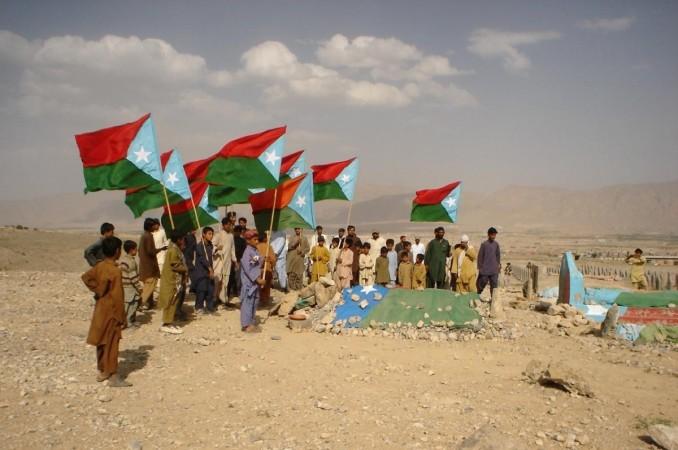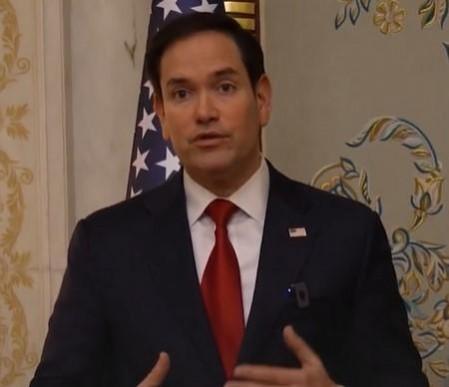
The Baloch people have recently been thrust into the international spotlight as human rights activist Mir Yar Baloch has condemned the United States' decision to label the Balochistan Liberation Army (BLA) and its affiliate, the Majeed Brigade, as foreign terrorist organizations. This designation has sparked significant backlash from Baloch activists who argue that their struggle is not rooted in terrorism but in a fight against state-sponsored oppression by Pakistan.
Mir Yar Baloch has been particularly vocal, highlighting the decades of repression faced by the Baloch, which includes state-led violence, economic exploitation, and the fallout from nuclear tests conducted in the region.
The Balochistan region has long been a focal point of conflict, with the Baloch people accusing the Pakistani government of exploiting the province's rich resources while neglecting the development of local communities.
The Balochistan Liberation Army, a separatist group, has been at the forefront of the struggle for Baloch rights, often clashing with Pakistani security forces in a bid to gain autonomy for the region.

Mir Yar Baloch, a prominent human rights defender, has been vocal in his condemnation of the US decision. He asserts that Balochistan has suffered 78 years of state-sponsored terrorism, economic exploitation, and environmental degradation due to radioactive fallout from Pakistan's nuclear tests.
According to Mir, the region has been subjected to a "brutal occupation" by what he describes as an extremist Pakistani state. He highlights the plight of the Baloch people, who have been targeted by IS-Khurasan (IS-K), an offshoot of the ISIS terror organization. Mir claims that IS-K is a deadly proxy nurtured by Pakistan's Inter-Services Intelligence (ISI), which has issued a fatwa calling for violence against Baloch political parties and activists.
"This is yet another stark example of how Pakistan weaponizes radical groups to crush legitimate political voices, suppress democratic aspirations, and destabilize the region," Mir stated in a post on X. He emphasizes that throughout history, the Baloch people have shown unwavering goodwill towards the United States. During the Soviet invasion of Afghanistan, they refrained from taking up arms against America or the Soviets.
Even after the events of 9/11, when NATO supply lines passed through Balochistan, there were no attacks by Baloch freedom fighters or civilians on American personnel or convoys.
Allegations Against Pakistan
Mir also highlights the fact that Osama bin Laden lived under the protection of Pakistan's military in Abbottabad for a decade. "Pakistan's own leaders have admitted waging a fake jihad against the interests of the US and the West, deceiving allies while breeding extremism. And yet, these same radicals are courted as 'strategic partners,' while the rightful owners of the resource-rich land of Balochistan are vilified as terrorists," Mir stated, criticizing the double standards. He describes Pakistan as a "rogue state in military uniform," which has repeatedly proven itself to be a "liability" to global peace, economic stability, and international trust.
The human rights activist argues that recognizing Balochistan's independence would provide the US with an ally that is moderate, stable, and aligned with democratic values. He contends that Balochistan is far preferable to a "corrupt" Pakistani military elite, which is rejected even by its own people. Mir urges Washington to stand with truth, justice, and the people of Balochistan, who are fighting against Pakistan for basic human rights.
The region is battling enforced disappearances, extrajudicial killings, and systematic repression. Many Baloch leaders are currently languishing behind bars without any proven crime or fair trial, denied bail, and often held under fabricated or blanket preventive detention laws.
In several cases involving Baloch leaders, courts have repeatedly denied bail, while families and lawyers are routinely blocked from accessing detainees despite court orders to the contrary. This has led to widespread criticism of the Pakistani judicial system and its handling of cases related to Baloch activists. The situation in Balochistan is further complicated by the presence of IS-K, which has issued a fatwa targeting Baloch political groups. This has raised concerns about the safety and security of Baloch activists and their families.
US designation and its implications
The US designation of the BLA and TMB as terrorist organizations has significant implications. The FTO designation bans material or financial support for the organizations, freezes their assets, and restricts the travel of their members. The Treasury Department's Office of Foreign Assets Control (OFAC) makes the Specially Designated Global Terrorist (SDGT) designation, which blocks the group's assets within the US and prohibits transactions with it. This move is part of the Trump Administration's commitment to countering terrorism, as stated by a US official.
The announcement of the designation was made on a Monday, with the official citing the March hijacking of the Jaffar Express train traveling from Quetta to Peshawar as a reason for the designation. During this incident, 31 civilians and security personnel were killed, and more than 300 passengers were held hostage.
The official's visit was ostensibly to attend a farewell event for US General Michael Kurilla, who was leaving the post of commander of the Central Command (CENTCOM), which covers Pakistan, in addition to the Middle East and Central Asia. According to the Pentagon, an event was held in Tampa, Florida, to bid Kurilla farewell and welcome his successor, Admiral Brad Cooper. Public schedules for the Departments of Defense and State, and the White House did not list any meetings for the official with Washington officials during that week.






![Ultrahuman launches Ring PRO, free charging case with more than just power and Jade AI [details]](https://data1.ibtimes.co.in/en/full/829151/ultrahuman-launches-ring-pro-free-charging-case-more-just-power-jade-ai-details.png?w=220&h=138)










